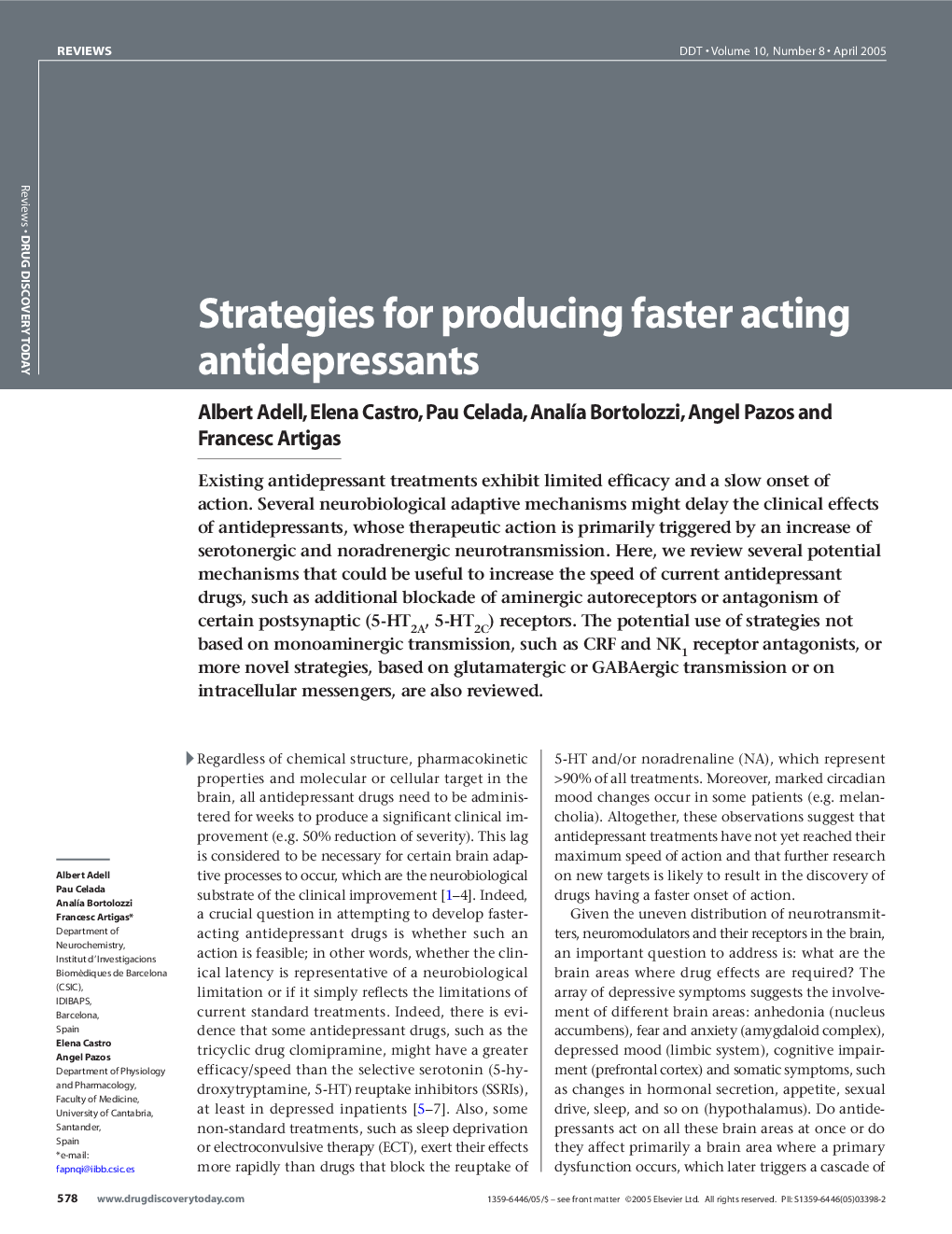| Article ID | Journal | Published Year | Pages | File Type |
|---|---|---|---|---|
| 10886317 | Drug Discovery Today | 2005 | 8 Pages |
Abstract
Existing antidepressant treatments exhibit limited efficacy and a slow onset of action. Several neurobiological adaptive mechanisms might delay the clinical effects of antidepressants, whose therapeutic action is primarily triggered by an increase of serotonergic and noradrenergic neurotransmission. Here, we review several potential mechanisms that could be useful to increase the speed of current antidepressant drugs, such as additional blockade of aminergic autoreceptors or antagonism of certain postsynaptic (5-HT2A, 5-HT2C) receptors. The potential use of strategies not based on monoaminergic transmission, such as CRF and NK1 receptor antagonists, or more novel strategies, based on glutamatergic or GABAergic transmission or on intracellular messengers, are also reviewed.
Keywords
Related Topics
Life Sciences
Biochemistry, Genetics and Molecular Biology
Biotechnology
Authors
Albert Adell, Elena Castro, Pau Celada, Analéa Bortolozzi, Angel Pazos, Francesc Artigas,
